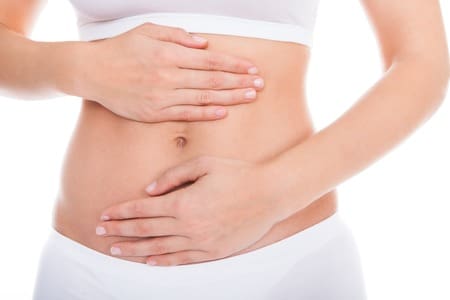The word is finally getting out. I have been saying for several years now that the digestive tract and the brain are connected, hence the term “second brain” when referring to the gut.
Evidence has been piling up showing that diet and gut bacteria influence our mood (FOOD=MOOD), our thoughts, and our behavior.
Now, researchers have found evidence of intestinal permeability issues or “leaky gut” in people with depression. Depression is also linked to low libido. People who have low libido are often depressed and people who are depressed often have low libido.
Normally, the digestive system is surrounded by an impermeable wall of cells. Certain behaviors and medical conditions can compromise this wall, allowing toxic substances and bacteria to enter the bloodstream.
In a study published in Acta Psychiatrica Scandinavica, approximately 35% of depressed participants showed signs of leaky gut, based on blood tests. Displaced bacteria can activate autoimmune responses and inflammation, which are known to be associated with the onset of depression and fatigue. Michael Maes, author of the paper and global research psychiatrist explains, “Leaky gut may maintain increased inflammation in depressed patients,” which could exacerbate the symptoms of depression if not treated.
Currently, leaky gut is treated with a combination of L-glutamine, N-acetylcysteine and zinc—which have anti-inflammatory and antioxidant properties—when behavioral and dietary modifications fall short.
What causes leaky gut?
- painkillers
- autoimmune disease
- antibiotics
- infections
- alcohol
- inflammatory bowel disease
- gluten hypersensitivity
- food allergies
- radiation therapy
- inflammation
- excessive exercise (marathons)
- stress
- exhaustion
- oral contraceptive pill
Bacteria that influence the brain:
Preliminary research suggests that these common gut microbes can also affect our thoughts and feelings.
Helicobacter pylori: Children infected with this ulcer-causing bacterium performed worse on IQ tests, suggesting a possible link between H. pylori infection and cognitive development. If H. pylori cells sneak into the brain, the cells may aggregate with the amyloid proteins characteristic of Alzheimer’s and instigate the buildup of plaque, suggests study co-author May Baydoun, a staff scientist at the National Institute on Aging. The National Institutes of Health estimates that about 20% of people younger than 40 and 50% of those older than 60 are infected with the bacteria, which can be treated successfully with natural supplements.
Lactobacillus helveticus and Bifidobacterium longum: Healthy human volunteers who consumed a probiotic mix of these bacteria exhibited less anxiety and depression.
Probiotic bacteria B. animalis subsp. lactis, Streptococcus thermophilus, L. delbrueckii subsp. bulgaricus, L. lactis subsp. lactis. Healthy women who consumed yogurt containing these bugs showed less activity in brain regions that process emotions and physical sensations.
Lactobacilli: Healthy students had fewer of these bacteria present in their stool during a high-stress exam time compared with a less stressful period during the semester.
The moral of this story is: eat your fermented vegetables, learn to make coconut milk kefir, yogurt and kombucha, and take your probiotics. The more beneficial bacteria you consume, and the wider the variety, the better! Your gut, brain, mood and libido will thank you!
Do you have a favorite probiotic food recipe? Share it with us in the comments section.
Here’s to the good guys in your gut and a life of vitality!
Dr. Keesha

Leave a Reply
You must be logged in to post a comment.